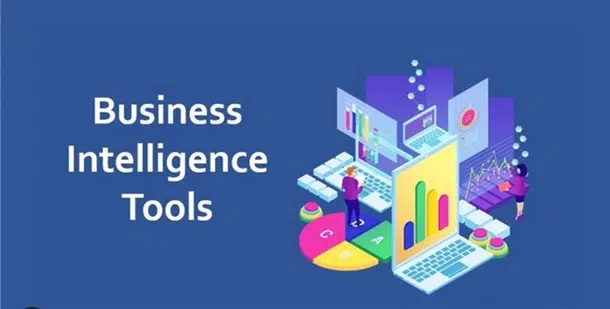
Business intelligence tools for marketing
In today’s fast-paced digital landscape, businesses are constantly seeking innovative ways to gain a competitive edge in the market. One such avenue that has gained significant traction is the utilization of business intelligence (BI) tools for marketing purposes. With the vast amount of data generated by online interactions, social media, and consumer behavior, harnessing this data effectively can drive targeted marketing strategies and ultimately boost ROI. In this blog post, we’ll delve into the world of business intelligence tools and explore how they can revolutionize marketing efforts.
Understanding Business Intelligence Tools
Business intelligence tools encompass a variety of software applications and technologies designed to analyze, process, and visualize data to facilitate informed decision-making. These tools collect data from multiple sources, transform it into actionable insights, and present it in a user-friendly format. From traditional reporting and dashboards to advanced analytics and predictive modeling, BI tools offer marketers a comprehensive toolkit to extract valuable insights from their data.
The Role of BI Tools in Marketing
Marketing, by its very nature, relies heavily on data to identify target audiences, track campaign performance, and optimize marketing strategies. Business intelligence tools play a crucial role in this process by providing marketers with the means to:
- Customer Segmentation: BI tools enable marketers to segment their audience based on various criteria such as demographics, behavior, and purchasing patterns. This segmentation allows for more personalized and targeted marketing campaigns tailored to specific customer segments.
- Campaign Performance Analysis: By integrating data from various marketing channels such as social media, email, and website analytics, BI tools provide insights into the effectiveness of marketing campaigns. Marketers can track key performance indicators (KPIs) such as click-through rates, conversion rates, and return on investment (ROI) to optimize campaign strategies in real-time.
- Predictive Analytics: Leveraging historical data and predictive modeling techniques, BI tools can forecast future trends and consumer behavior. This enables marketers to anticipate market demand, identify potential opportunities, and proactively adjust their marketing strategies accordingly.
- Competitor Analysis: In addition to analyzing internal data, BI tools can also gather intelligence on competitors’ marketing efforts. By monitoring competitors’ performance metrics, advertising strategies, and consumer sentiment, marketers can identify areas of opportunity and refine their own marketing tactics to stay ahead of the competition.
Popular Business Intelligence Tools for Marketing
Several BI tools cater specifically to the needs of marketers, offering a wide range of features and capabilities. Some of the most popular BI tools used in marketing include:
- Google Analytics: A web analytics service offered by Google, Google Analytics provides valuable insights into website traffic, user behavior, and conversion tracking. Marketers can leverage Google Analytics to measure the effectiveness of their online marketing efforts and optimize website performance.
- HubSpot: HubSpot offers a suite of marketing automation tools, including analytics and reporting features that help marketers track and analyze their inbound marketing campaigns. From email marketing and social media management to lead generation and customer relationship management (CRM), HubSpot provides comprehensive solutions for modern marketers.
- Tableau: Tableau is a powerful data visualization tool that allows marketers to create interactive dashboards and reports from various data sources. With its intuitive interface and advanced analytics capabilities, Tableau enables marketers to uncover insights and make data-driven decisions with ease.
- Salesforce Einstein Analytics: Built on the Salesforce platform, Einstein Analytics delivers AI-powered analytics capabilities tailored for marketers. From predictive lead scoring and customer segmentation to personalized marketing recommendations, Salesforce Einstein Analytics empowers marketers to drive smarter marketing strategies and achieve better results.
Conclusion
In an era defined by data-driven decision-making, business intelligence tools have become indispensable assets for marketers looking to gain a competitive advantage in the market. By harnessing the power of BI tools, marketers can unlock valuable insights from their data, optimize marketing campaigns, and drive business growth. Whether it’s analyzing customer behavior, tracking campaign performance, or forecasting future trends, BI tools provide marketers with the tools they need to succeed in today’s dynamic marketing landscape.
